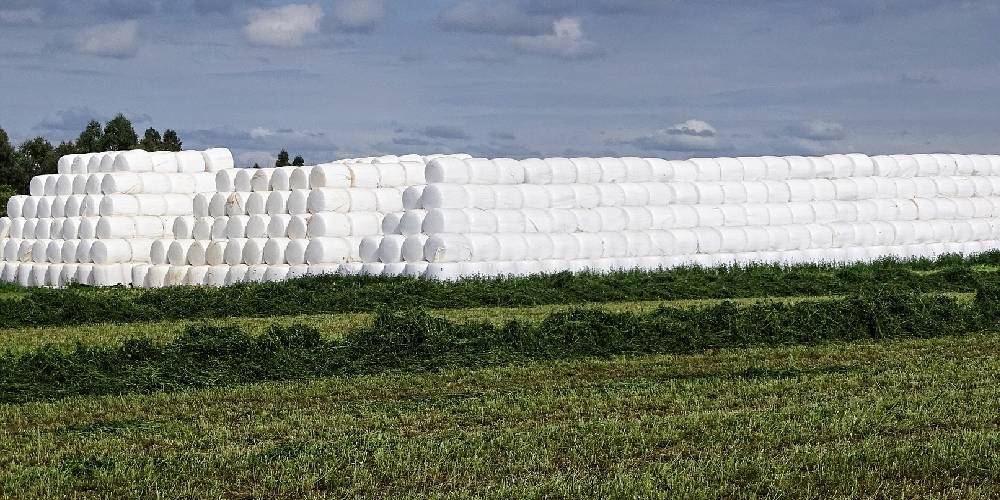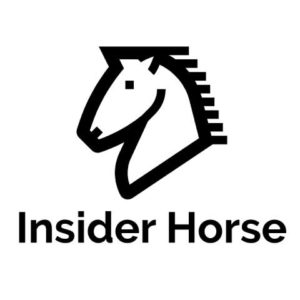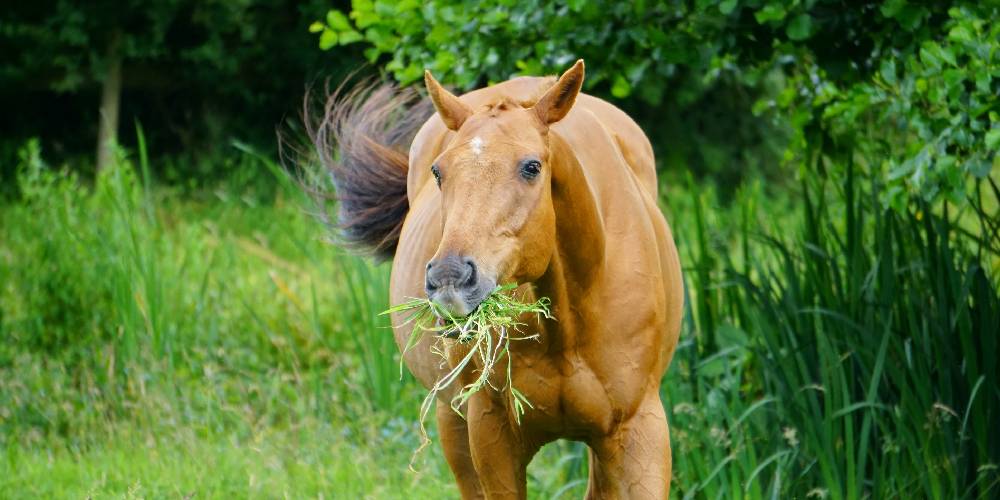Most people know that horses eat things like grass and hay, but some of them wonder, do horses eat anything else? Could they be omnivores?
What Is An Ominvore?
An omnivore is an animal that eats both plant and animal products. People are a great example of what omnivores are as we eat both plants (fruits and vegetables) and animal products (meat, eggs, etc.).
Things that people may confuse with omnivores are herbivores and carnivores.
Carnivores are meat-eating animals like lions and other big cats. These animals are typically predators and will eat herbivores.
Herbivores are plant eaters like cows. They don’t eat any meat or animal products and only will eat grass and other types of vegetation. These animals are typically prey animals and are eaten by carnivores.
So Are Horses Omnivores?
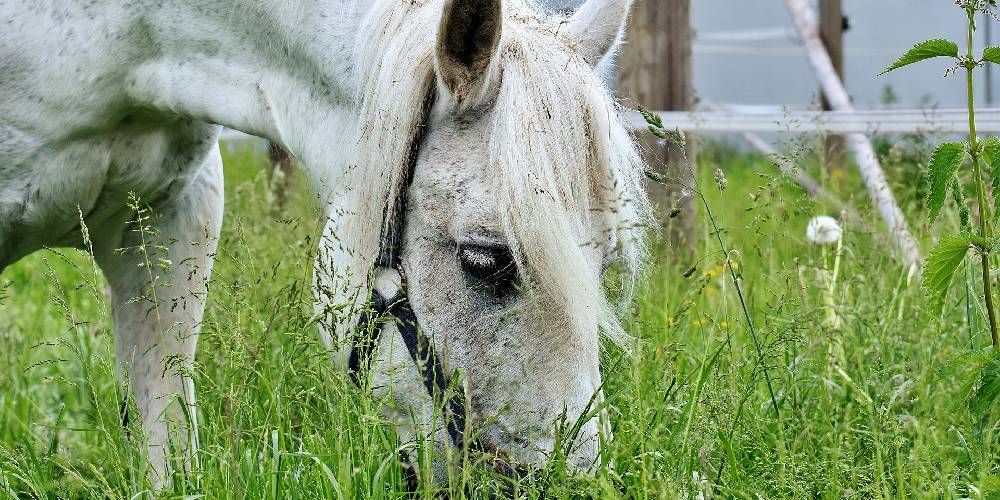
No, horses are not omnivores. Horses are an herbivore meaning they only eat plants and plant products. Some examples of the foods they can eat are grass and hay, like bermudagrass and alfalfa, as well as certain fruits and vegetables.
Why Can’t Horses Eat Meat or Other Animal Products?
Horses can’t eat meat or other animal products because they simply aren’t designed to do so.
Looking at a horses’ teeth alone shows that they are not meant to eat meat. Horses have large flat teeth for cutting grass to eat. Sharper teeth would be required to tear into and cut meat and flesh and the horse doesn’t have teh necessary teeth for that diet.
The liver of a horse is not meant to filter through those minerals and proteins found in meat.
Though there many be some freak stories of horses eating other animals, it is very very rare and unnatural for the horse to eat anything other than plants.
Types of Hay and Grass Horses Eat
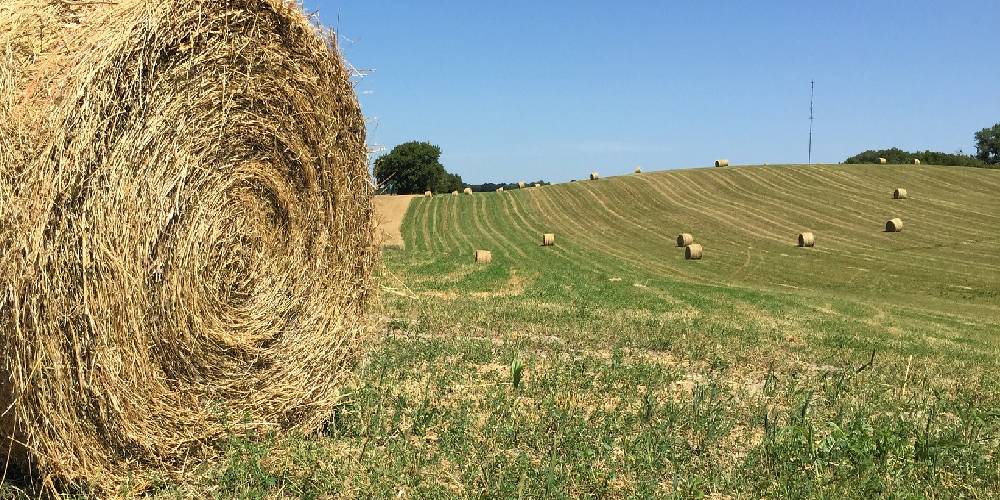
Bermuda Grass
Bermuda is a common type of hay found in barns across the world. This grass is low in sugar and low in protein making it overall lower calories. This grass is used mainly in the South Western states of the United States.
This grass is a warm-season crop so it is harvested throughout spring and summer.
Bermuda has a relatively high iron level and as it matures, can be more difficult for a horse to digest which makes this hay a turnoff for some horse owners.
I fed my horses Bermuda as well as alfalfa and had no problems. The horses would typically leave the Bermuda alone and munch on it throughout the day.
Alfalfa
Alfalfa is a very commonly found hay used in many horse facilities. This hay is high in sugar, protein, vitamins, and minerals. It has been used to feed livestock for hundreds of years because it has more benefits than other types of hay and feed.
Many horse owners prefer not to use alfalfa because of the high sugar levels. If they do use alfalfa however, they do something similar to what I did and pair it with a different kind of hay that is more ‘mild’ so the horse isn’t getting too much.
Orchard Grass
This is a newer kind of hay that is growing in popularity in the horse world. The reason for the growing popularity of orchard grass is the fact that it is high in protein, calories, vitamins, and minerals, and offers much more than the contents of timothy grass.
One great thing about orchard grass is the fact that it offers the same balanced levels of phosphorus and calcium that timothy grass does.
Timothy Grass
Timothy is a great option for hay all around. Out of all the types of hay, it is the easiest for a horse to digest. Because this hay isn’t very rich and is easy to digest, it is great to feed obese, sensitive, or colicky horses.
The vitamin and mineral contents of timothy grass help your horses’ coat to grow out smooth and shiny, as well as promote healthy gut and bowel function.
Timothy is often harder to come around than your standard alfalfa and Bermuda, which is part of the reason why it isn’t more commonly used.
Teff Grass
This is a grass that is low in sugar. Teff is a great option for horses that need less sugar in their diets such as overweight horses or horses suffering from laminitis or founder.
Usually this type of hay is found in lower calorie options, but there are some high calorie options as well.
Teff is a warm season crop just like Bermuda grass is. Often times, this grass needs to be imported from other countries.
Fun Fact: Teff is actually a grain that is commonly used in Ethiopia
What Do Horses Eat In the Wild?
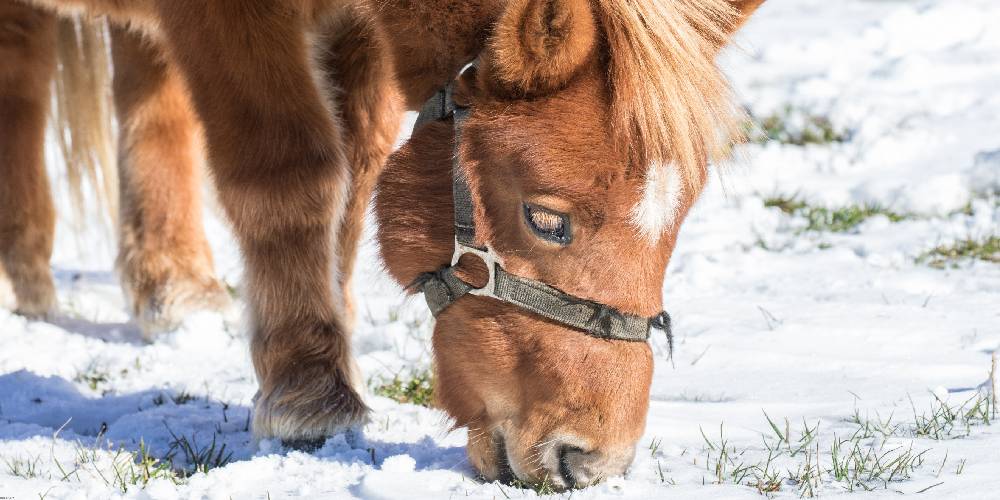
Wild horses graze and forage for food. They eat grass, wild fruits and vegetables they can find, brush, leaves, and whatever else they can find.
Typically wild horses stay in the general vicinity of a water hole so water for the herd is nearby.
when one water source dries up or the food isn’t as plentiful, wild horses will migrate until they find a new source to sustain them.
Fruits and Vegetables That Horses Can Eat
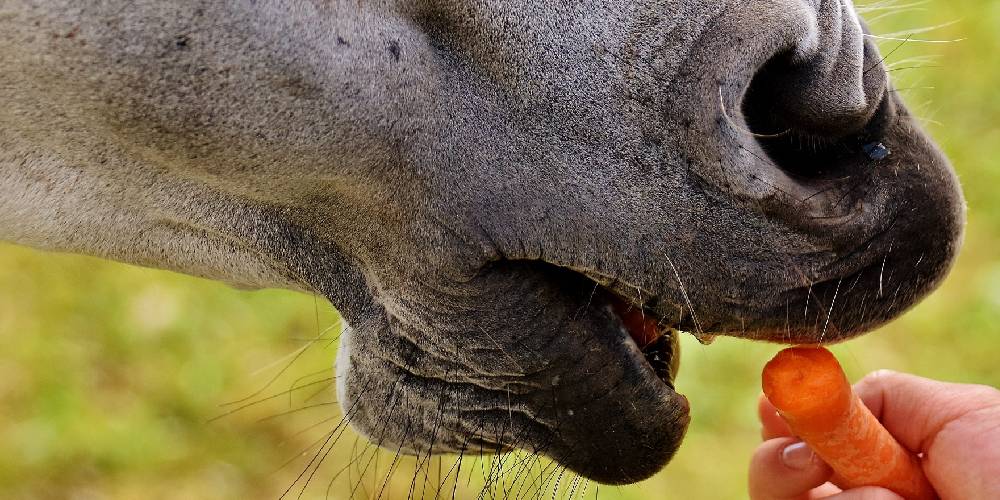
Horses can eat a number of fruits and vegetabls as well as other snacks.
Some examples of foods they can eat are apples, bananas, watermelon, and carrots.
I go into more detail and give more information on what horses can eat in my article titled “Can Horses Eat Celery? Fruits Vegetables and Other Snacks that Horses can Eat“
At What Age Do Horses Start To Eat Whole Foods?
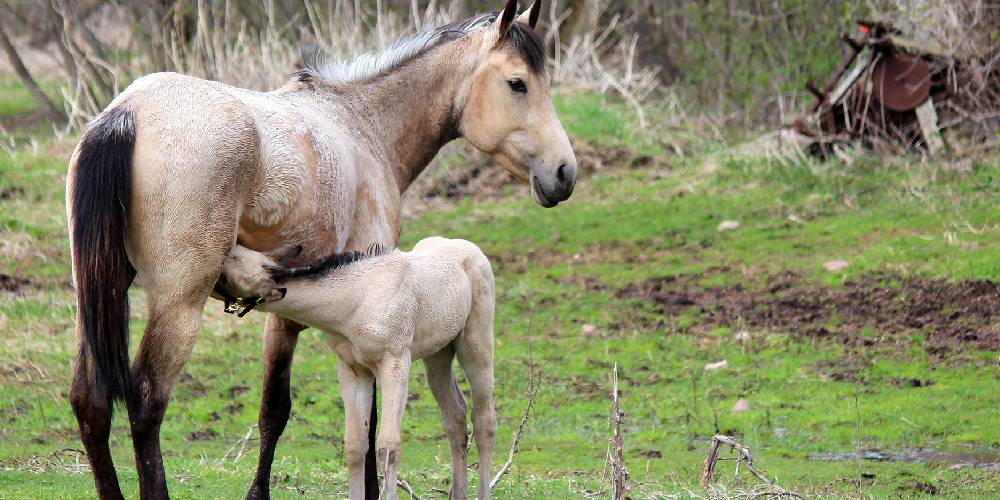
Baby horses, called foals (read more on foals in my article titled “What Is A Baby Horse Called? Facts On Foals“) start to officially eat whole foods like hay and grass around the age of one-month-old, but they will begin to copy their mother and try to nibble on hay or grass around the age of ten days old.
Foals become more reliant on whole foods around two months old as that is when their mother’s milk is no longer enough for the growing baby, and they need more food to sustain them.
FAQs On What Horses Can Eat
What would happen if horses ate meat?
If a horse just as a little piece of it, nothing should happen to them, but if a horse continues to eat it then they could begin to have liver issues and other serious health issues. There is even some debate on whether or not horses can get mad cow disease.
What is haylage and is it safe for horses to eat?
haylage is a form of horse feed that some people feed their horses. Haylage is basically hay that is cut earlier in the season left to wilt. After that it is bagged in plastic before being sold and fed to animals.
Haylage puts you horse at risk for botulism and I would definitely recommend hay over haylage.
